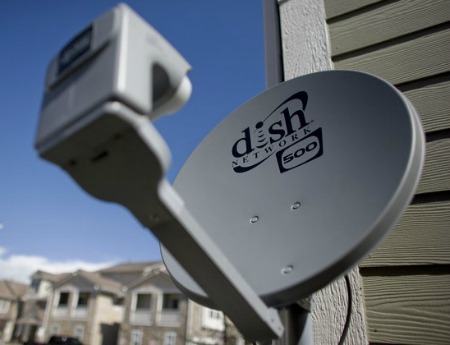Dish Makes Case for AWS-3 Bids

The smarter way to stay on top of broadcasting and cable industry. Sign up below
You are now subscribed
Your newsletter sign-up was successful
Dish has reiterated, this time to Sen. John Thune (R-S.D.), chair of the Senate Commerce Committee, that its AWS-3 bidding activities — through Northstar and SNR Wireless — were legal, violated no FCC policies and helped to create the most successful auction in FCC history (over $40 billion in bids).
That came in a letter to the senator, who had asked the satellite company for information on its bids given allegations it had violated FCC rules by colluding with those desigated entity partners (DE's).
Dish pointed out that the joint bidding arrangements (JBA's) among the companies had been disclosed beforehand and that they were allowed to collaborate and cooperate during the auction per exceptions to the FCC's Anti-Collusion Rules that had been used in the past my many others.
Dish pointed out that among those who have used joint bidding arrangements in past auctions include Verizon. AT&T, Sprint and MetroPCS.
"For example, in 2005, during Auction 58, Verizon (Cellco) used a JBA with a DE named Vista PCS, LLC (“Vista”). Verizon (Cellco) owned 80% of the equity of Vista and Verizon’s (Cellco’s) agreements and structure with Vista mirror closely the DISH, SNR and Northstar structure and multiple DE arrangements approved by the FCC since 2000," Dish wrote the senator.
Dish argued that the DISH/SNR/Northstar JBA was pro-competitive, including that it "enabled SNR and Northstar to take into consideration the licenses being won by the other, in conjunction with their own business plans, such that the resulting licenses acquired could complement each other, as well as DISH’s current spectrum holdings, and facilitate possible build-out, roaming, and the provision of service to consumers."
The FCC is currently deciding whether the Dish-related DE's are eligible for over $3 billion in bidding discounts as part of a larger review of whether it should grant them the licenses they won. Dish wants to make sure the FCC does not retro-engineer the rules.
The smarter way to stay on top of broadcasting and cable industry. Sign up below
"DISH, SNR and Northstar complied with the law in reaching and implementing their agreements related to Auction 97. Neither the FCC, nor Congress, should shift the goal posts after the fact — to do so would violate the law, ignore reasonable investment expectations and significantly undermine future FCC spectrum auctions," Dish told Thune.
Contributing editor John Eggerton has been an editor and/or writer on media regulation, legislation and policy for over four decades, including covering the FCC, FTC, Congress, the major media trade associations, and the federal courts. In addition to Multichannel News and Broadcasting + Cable, his work has appeared in Radio World, TV Technology, TV Fax, This Week in Consumer Electronics, Variety and the Encyclopedia Britannica.

